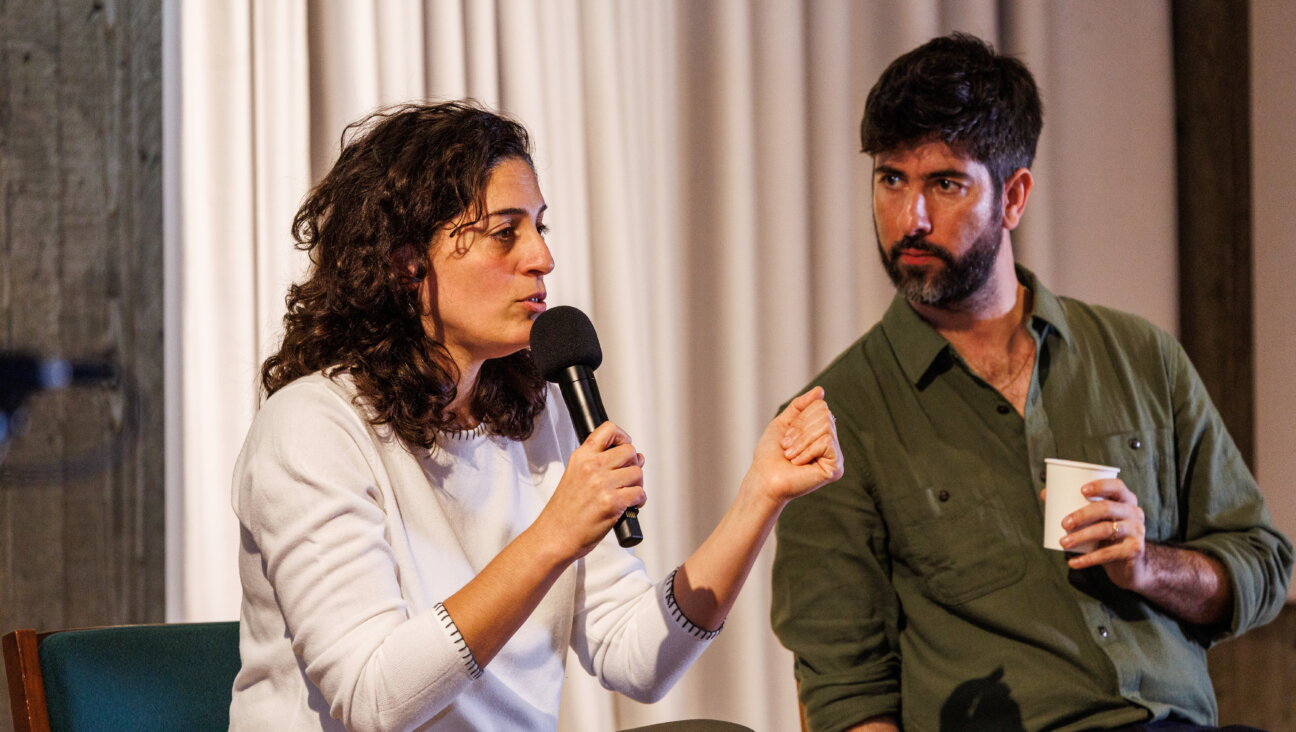When the Dog Dies
What was Israeli Knesset member Inbal Gavrieli (Likud) referring to last week when she said to Knesset member Ahmed Tibi (The Democratic Front for Peace), prior to a parliamentary vote of no-confidence in the Likud government, “It’s worth your while to be paired with me, because you’ll want to be paired yourself when the dog dies”?
Why did Tibi, a longtime intimate of Yasser Arafat, reply to her, “What a vulgar thing to say! You’re the most vulgar woman in the Knesset”?
Why did Gavrieli remark later that Tibi had blown up her remark out of all proportion?
Pairing is a traditional procedure whereby parliamentarians who will not be present at a vote get someone from an opposing party to agree to stay away, too, thus offsetting their absence. In Gavrieli’s case, she wanted to be with a sister who was giving birth, and asked Tibi, who, as a member of the opposition, would have supported the no-confidence motion, to refrain from voting in tandem with her.
And the dog? Tibi clearly interpreted this as a reference to the dying Arafat. Gavrieli, in his opinion, was saying that since Tibi, an Arafat follower and associate, soon would be obliged to absent himself from the Knesset, too, in order to attend the Palestine Liberation Organization leader’s funeral, he also would want someone with whom to be paired. If he did her a favor now, she would return it later.
Whatever one thinks of the late president of the Palestinian Authority, this would indeed have been an act of parliamentary rudeness. Could Gavrieli have claimed, in her defense, that Tibi’s reaction was exaggerated because she was not referring to Arafat at all, but to an entirely proverbial canine?
There are two relevant maxims that she might have cited on her behalf. The first of these is the Palestinian Arabic kul kalb biji yomo, also existing in Hebrew as kol kelev yavo yomo — i.e., “Every dog’s day will come.” This is not quite the same as the English proverb, “Every dog has its day,” since its implications, as befits the lowly status of the dog in Arab culture, are negative rather than positive; whereas the English implies that even the most downtrodden individual has his moment of glory, the Arabic means that even the most successful scoundrel will receive his comeuppance eventually.
And yet if Knesset Member Gavrieli had this saying in mind, of whom but Arafat could she have been thinking? She still would have been telling Knesset Member Tibi that his hero belonged to the species Canis familiaris, even if only in a proverbial sense.
The second maxim has a Hebrew version that goes, “Either the dog will die or the squire will,” and the Arabic equivalent, “Either the camel will die or the sheikh will.” Both allude to the same story — in which, in its Hebrew version, a paritz, a Polish country squire, approaches his Jewish estate steward with a proposition. He has a favorite dog, the squire says, that he would dearly like to converse with, and he will give the Jew a large sum if he undertakes teaching the animal to speak. However, the Jew better be sure he can do it, because the squire is no fool: If the steward takes the money and fails to produce results within a year, the squire will chop off his head.
The Jew promises that he will teach the dog to speak, and departs with the money and the dog. Hearing of this, his friends are aghast. How, they ask, can he sentence himself to a certain death? “Well,” the Jew answers, “a year is a long time. A lot can happen in it. The dog may die. The squire may die. And if neither does, who knows? I may even teach the dog to speak.” (In the Arabic version this becomes, “I may even teach the camel to read.”)
To say in Israeli Hebrew, therefore, “Either the dog will die or the squire will” is to say, “I’m willing to run the risk,” or “I’m willing to take my chances.” Is this the dog to which Knesset Member Gavrieli was referring? Was she telling Knesset Member Tibi, “You can take your chances, but in the end you’ll want to be paired with me”?
This strikes me as unlikely. What chances could she have been thinking of? Tibi is not known as a political gambler, nor has he chosen, in recent memory, to run any political risks. On the contrary, by remaining a loyal Arafatist he has managed to stay popular with his Palestinian constituency while earning the contempt of Israelis like Gavrieli.
Gavrieli was indeed being vulgar and insulting. But Tibi’s slavish support throughout the years for a terrorist leader like Arafat has not been in good taste, either. They really don’t make a bad pair.
Questions for Philologos can be sent to [email protected]
A message from our Publisher & CEO Rachel Fishman Feddersen

I hope you appreciated this article. Before you go, I’d like to ask you to please support the Forward’s award-winning, nonprofit journalism during this critical time.
We’ve set a goal to raise $260,000 by December 31. That’s an ambitious goal, but one that will give us the resources we need to invest in the high quality news, opinion, analysis and cultural coverage that isn’t available anywhere else.
If you feel inspired to make an impact, now is the time to give something back. Join us as a member at your most generous level.
— Rachel Fishman Feddersen, Publisher and CEO























